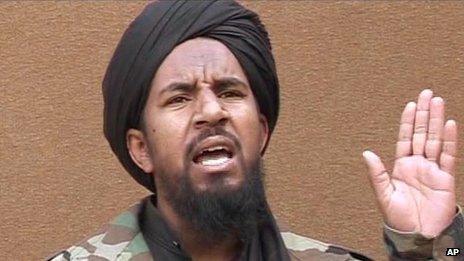Obama's drone policy dilemma
- Published
- comments

Pakistani officials say two missiles from unmanned aircraft killed 15 people
They came to bury senior al-Qaeda leader Abu Yahya al-Libi, not praise him.
But American officials are so keen to trumpet their latest drone kill that it sounds like they are about to offer him a job rather than announce they have killed a bitter enemy.
They say he was "experienced", "versatile", played a "critical role" as a "longstanding member of the leadership" who had "gravitas" and "religious credentials".
Rather like some official announcement of the retirement of a colleague, they continue: "[Al-Qaeda leader Ayman al-]Zawahiri will be hard-pressed to find any one person who can readily step into Abu Yahya's shoes."
"There is no-one who even comes close in terms of replacing the expertise AQ has just lost," they add.
This rather strange, gushing testimonial to a terrorist is all part of the Obama administration's new-found enthusiasm to open up about their drone wars.
Indeed, it is part of their hard sell of a new way of warfare, which they believe has clear political advantages for President Barack Obama.
From their point of view, they have achieved a key military objective with no cost to American lives - and so no domestic political toll.
This was a successful operation, but even failures do not impose a heavy price within the US.
As one expert put it to me: "When a drone goes missing, no mothers weep."
But it is not true that there is no cost.
Pakistan has told the US, external that drones strikes must stop, they are a red line for the country, and are both against international law and a breach of national sovereignty.
For more on this subject, read my piece on President Obama's drone policy.